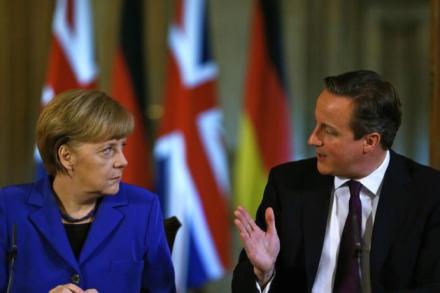David Cameron’s contradictory EU stance
Of all the talks he will have with European leaders about his plans to renegotiate Britain’s relationship with Europe, David Cameron was always likely to enjoy his meeting with Angela Merkel the most. And she doesn’t seem to have disappointed him, saying treaty change was not ‘impossible’ and that ‘we would like to be a part of the process that is going on in Great Britain at the moment and we would like to be a constructive partner in this process’. This is very encouraging for Cameron, though the feeling in Europe generally is still that treaty change is too hard or inconvenient. Which is why Number 10’s insistence on



















